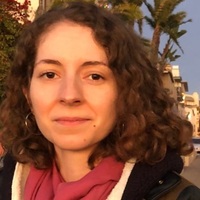While the digitalization of content has increased the visibility of authorized and unauthorized forms of online viewing, the last twenty years has also witnessed an increase in the number of transnational television flows. Although... more
While the digitalization of content has increased the visibility of authorized and unauthorized forms of online viewing, the last twenty years has also witnessed an increase in the number of transnational television flows. Although television content has traveled across borders before, the course and the content of flows has changed dramatically since the 1980s. Increasing numbers of format adaptations and the rise of new centers of production like Israel, Korea and Turkey have instigated a new wave of discussions both in academia and mainstream media that question the impact of this newfound multidirectionality. These discussions have seen the emerging centers of production as evidence of a change in the global television market long dominated by Anglo-American production. I argue on the contrary and explain how despite the emergence of new centers of production, Anglo-American hegemony has retained its power. By exploring Turkey's position as a new peripheral center of product...
While Turkish television shows have been quite popular in the Middle East, the Balkans, and South America, Turkish producers have been less successful in exporting content to the Western European and North American markets. After... more
While Turkish television shows have been quite popular in the Middle East, the Balkans, and South America, Turkish producers have been less successful in exporting content to the Western European and North American markets. After receiving moderate ratings in Turkey, Son (2012) was the first Turkish show to be sold to Western Europe when the Swedish public television stv2 purchased the rights to air it with subtitles. While the American adaptation, Runner , did not make it on air on ABC despite the pilot order, the Dutch and the Spanish adaptations were filmed in 2016 and 2017, respectively. Son ( The End ) remains the only success story among other attempts to introduce Turkish shows into these new markets. In this article, I argue that Son ’s two opposing female characters offer a reflexive discussion of Turkey’s identity, and that this allegorical representation, which anchors the story in the current geopolitical climate—mirroring Turkey’s role as an east-west bridge—enables the...
